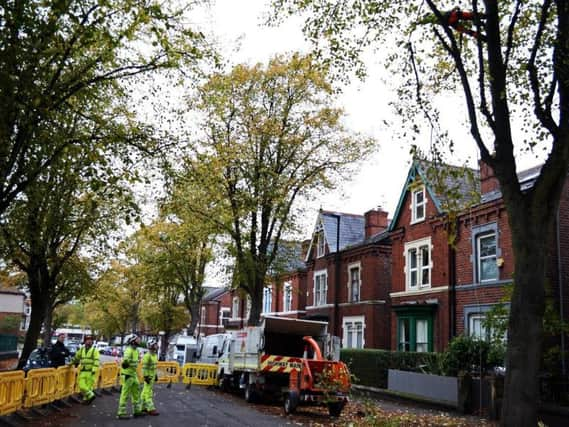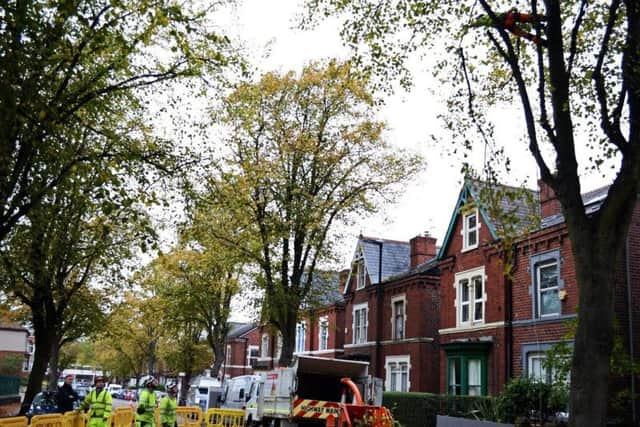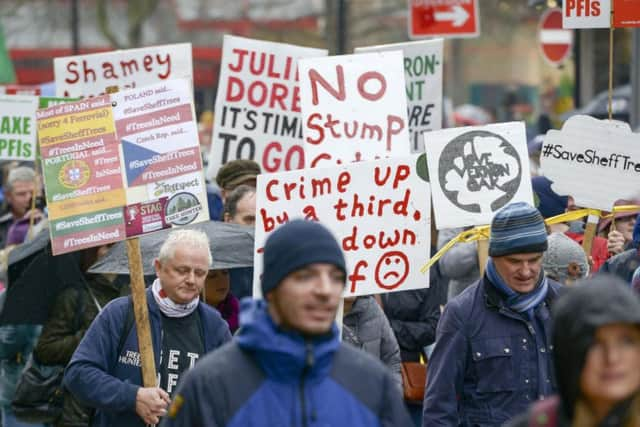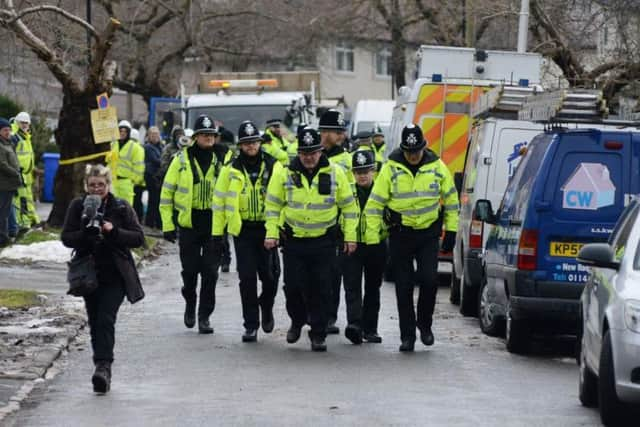Five damning findings from the Sheffield trees investigation


The Government agency ruled there was “insufficient evidence” to attempt a prosecution for felling without a licence but strongly criticised the council for falling “far short of good practice” in a number of areas, including in its record-keeping, engagement and consultation, tree management techniques and contract management.
Here are some of the key findings from the report:
Advertisement
Hide AdAdvertisement
Hide Ad

1. Around 600 trees may have been felled illegally - but no prosecution will take place
The Forestry Commission was investigating whether Sheffield Council and Amey required felling licences for the mass removal and replacement of trees they were conducting under a £2bn highways contract known as Streets Ahead. Doing so without a licence where it is required is an offence that can result in a fine “twice the sum which appears to the court to be the value of the tree”.
The council had argued such licences were not necessary as the work was conducted as part of its statutory highways duties.
However, the FC decided to investigate after details of the Streets Ahead contract were made public in early 2018 and showed it included “a commitment to fell 200 trees per year”, which the commission says meant the work could have been happening as a policy decision rather than a statutory duty.
Advertisement
Hide AdAdvertisement
Hide Ad

Using historic photographic evidence of sites where trees had been felled, the Forestry Commission assessed a sample of 691 trees to see whether licences would have been required in each case. It found 77 of them - 11 per cent of the sample - “could not confidently be assessed as being excepted from the need for a felling licence”. However, no single tree was categorised as having "robust evidence" that the exception did not apply.
From expanding out the sample to the total felling programme, the FC found “potentially around 600 trees were felled by SCC and Amey which may have required a felling licence… an offence may have been committed”.
But the FC said it would have needed to gather sufficient evidence to demonstrate that “felling clearly ‘appears’ to have required a licence” to put a case for prosecution to the CPS, who would then conduct their own evidence test.
Advertisement
Hide AdAdvertisement
Hide Ad

2. Sheffield Council repeatedly failed to provide information to investigators
The Forestry Commission formally began its investigation on April 19, 2018 after the council failed to respond on March 26 that year to a request for evidence that a felling licence had not been required.
The commission asked for felling to be suspended apart from those trees posing an immediate danger to the public. At that stage, work had already been put on hold following increasing protests against the policy, multiple arrests and national political pressure for the programme to be rethought.
The FC report says Sheffield Council “repeatedly failed” to provide the information requested in March during several rounds of correspondence, leading the agency to make a formal request under environmental regulations for the evidence with an associated warning that a failure to provide it by May 25 would result in a complaint being made to the Information Commissioner.
Advertisement
Hide AdAdvertisement
Hide AdSheffield Council replied on May 25 with a spreadsheet showing details of records for 5,474 trees that had been felled including details of why it felt a licence was not required. But the FC says other details that were requested such as the size of the felled trees, the date of felling and information on replanting, was not provided.
Further information was requested from the council on June 5, with the council replying on July 30 but providing “no further substantive evidence to support the exceptions being claimed apart from the details relating to tree condition”.
The report concluded that if the council had shared more substantial information a full investigation would have been unlikely to have been required.
3. Council’s approach lacked adequate consultation from the start - and has cost taxpayers’ money
Advertisement
Hide AdAdvertisement
Hide AdThe report criticised Sheffield Council’s insistence that all correspondence went through their legal team rather those directly in charge of street management. It said this approach was symptomatic of how the council’s more general approach to the issue.
“More open engagement by SCC may have revealed earlier in the process that exceptions did apply to the felled trees and may have saved the FC, SCC and the wider taxpayer both time and money.
“Indeed, this case has been characterised by a lack of adequate engagement and consultation by SCC from the very beginning. This is not only in relation to the FC assessment of alleged illegal felling, but can be traced back to the very beginning of the Streets Ahead programme. SCC failed to adequately engage their primary stakeholders, local residents. The formation of Sheffield Trees Action Groups is symptomatic of this lack of consultation, and a direct consequence of attempting to deliver a service without the engagement and buy-in of service users.
“Had genuine consultation and feedback been sought and acted upon at an early stage, and the Streets Ahead programme adapted as a result, the FC would likely not have been required to assess SCC’s felling programme, and some of the 5,474 trees that were felled might still have been standing.”
4. Felling was not a 'last resort'
Advertisement
Hide AdAdvertisement
Hide AdSheffield Council had repeatedly defended their felling programme by insisting that trees were only ever removed as a "last resort". But the commission's report highlighted other options the council could have taken instead of felling thousands of mature trees and replacing them with saplings.